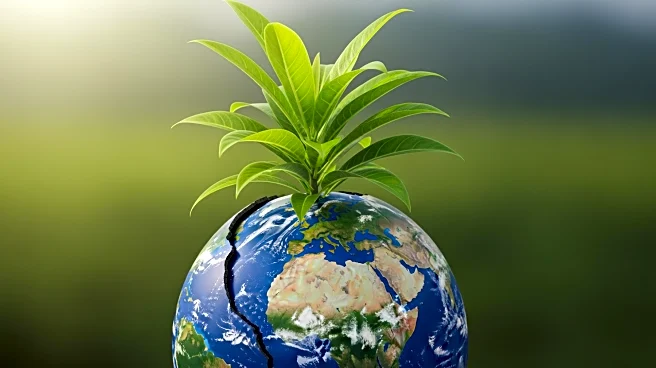What's Happening?
COP30, an international climate conference, is currently taking place in Belém, Brazil. The conference is a significant event where global leaders and environmental experts gather to discuss pressing climate issues
and strategies for sustainable development. The focus is on addressing climate change impacts, promoting renewable energy, and implementing policies to reduce carbon emissions. This conference serves as a platform for countries to negotiate agreements and commitments aimed at mitigating climate change and its effects on the planet.
Why It's Important?
The COP30 conference is crucial as it brings together international stakeholders to tackle climate change, a global issue with far-reaching consequences. The discussions and agreements made at this conference can influence global environmental policies and drive efforts to reduce carbon footprints. Successful negotiations can lead to increased investment in renewable energy and sustainable practices, benefiting economies and societies worldwide. The outcomes of COP30 could shape future climate action and determine how countries collaborate to protect the environment.
What's Next?
Following COP30, countries are expected to implement the agreements and commitments made during the conference. This may involve revising national policies, increasing funding for renewable energy projects, and enhancing international cooperation on climate initiatives. Stakeholders, including governments, businesses, and civil society groups, will likely monitor the progress and hold accountable those responsible for meeting climate goals. The conference's outcomes could also influence future climate negotiations and set the stage for subsequent international environmental summits.
Beyond the Headlines
COP30 not only addresses immediate climate concerns but also highlights the ethical responsibility of nations to protect the environment for future generations. The conference underscores the importance of balancing economic growth with environmental sustainability, prompting discussions on the long-term impacts of climate change on biodiversity, human health, and global stability. It also raises awareness about the need for equitable climate solutions that consider the needs of developing countries and vulnerable populations.









